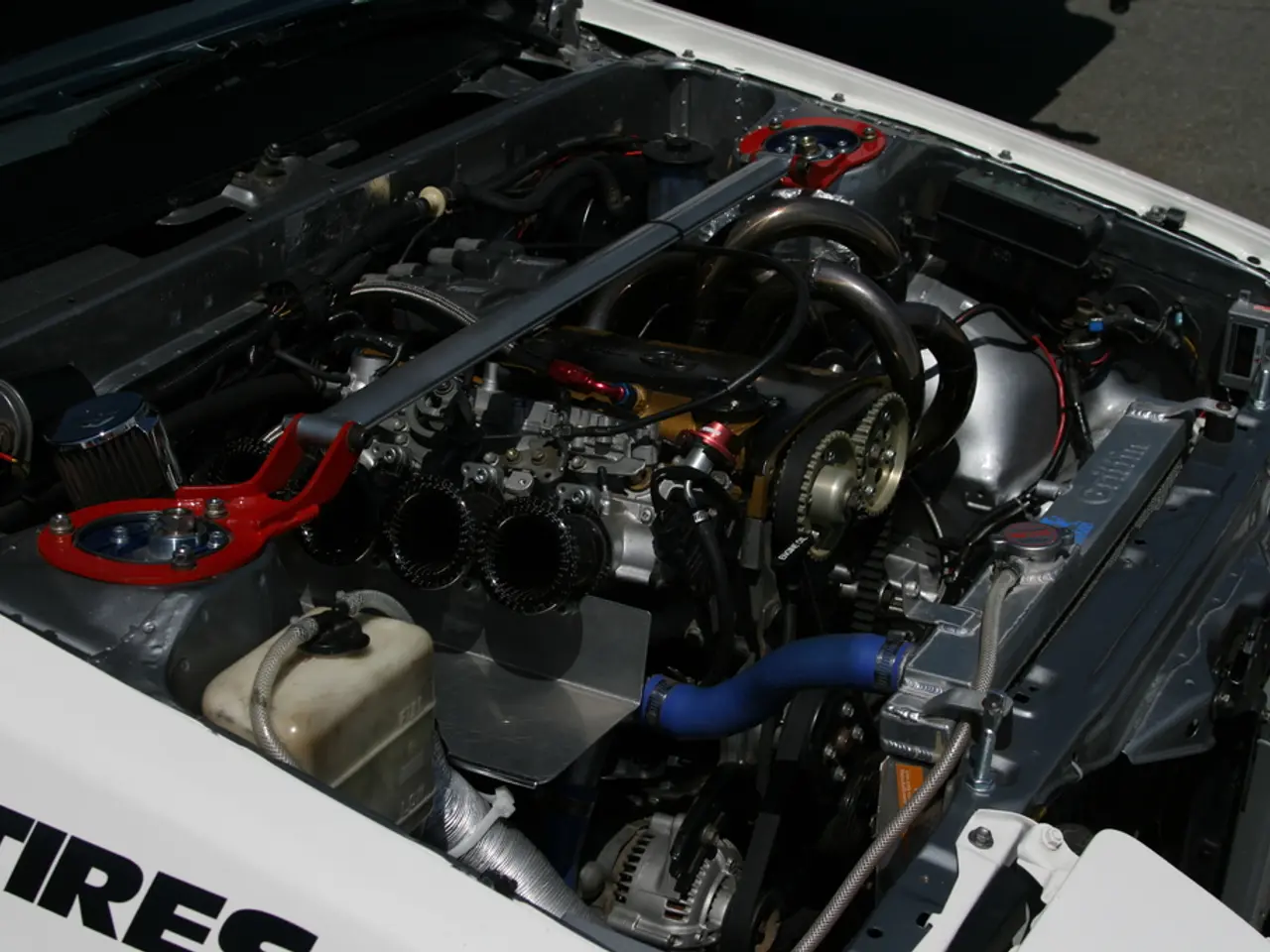Electric Vehicle growth propelled by Li-Ion BMS, ensuring safer and more intelligent energy management.
In the rapidly evolving world of electric vehicles (EVs) and energy storage systems, the role of Battery Management Systems (BMS) is increasingly significant. These systems are crucial for ensuring safety, performance, and lifecycle optimization, particularly as pack sizes grow.
The automotive passenger battery electric vehicle (BEV) segment currently holds the majority market share, reflecting the mass adoption of EVs and the demand for enhanced battery safety, efficiency, and reliability.
One of the key trends in BMS is the dominance of modular topology for large battery packs. This design choice, favoured by manufacturers such as Samsung SDI Co., Ltd., LG Energy Solution, Elithion, Inc., and LION Smart GmbH, offers scalability, robust reliability, and simplified maintenance.
However, the implementation costs for advanced BMS, especially for scale deployments, remain high, limiting market expansion in price-sensitive regions.
Another emerging trend is the rise of distributed topology. This architecture, offered by companies like Daly Electronics Co., Ltd. and Hitachi Astemo, Ltd., provides superior flexibility, scalability, and safety for high-capacity storage and next-generation EVs.
The hardware segment has the highest share in the Li-Ion Battery Management Systems (BMS) market. Key players in this segment include Denso Corporation, which supplies battery-monitoring ICs and electronics for EV partnerships, focusing on safety and lifecycle optimization, and Shenzhen Jiabaida (JBD), which manufactures smart BMS modules for consumer and industrial Li-ion batteries.
Germany plays a central role in the BMS sector, with companies like the BMZ Group, a leading European manufacturer of lithium-ion battery systems with over 25 years of experience, and Powerkönig, a German brand focusing on battery storage solutions with integrated smart BMS technology, being active in the development of Li-Ion Battery Management Systems.
The stationary utility storage segment is projected for robust growth as demand for grid stabilization and renewable integration increases. Nuvation Energy specializes in BMS solutions for commercial energy storage, with modular and scalable energy management.
The software/analytics segment is the fastest-growing area, integrating AI and machine learning to provide real-time diagnostics, enhance performance, and predict failures. Companies like Robert Bosch GmbH, Aptiv PLC, and Ewert Energy Systems are at the forefront of this development.
Cost-effective retrofitting for older fleets is helping bridge the gap in price-sensitive regions. Sensata Technologies provides BMS hardware, sensors, and electronics focused on battery safety and monitoring, expanding through acquisitions.
Manufacturers like BYD Company Limited, Marelli, and Continental AG also integrate smart electronics and BMS into their automotive platforms, aiming for optimized performance and energy use. Hangzhou Bestech Power Co., Ltd. is a supplier of cost-effective BMS for vehicles, industrial, and storage applications.
Lastly, Panasonic Energy Co., Ltd. and Contemporary Amperex Technology Co., Ltd. (CATL) are major suppliers of Li-ion batteries and BMS for automotive and consumer markets, developing their own BMS algorithms and making heavy investments in R&D.
In conclusion, the BMS market is dynamic and diverse, with numerous players and trends shaping its future. As the demand for EVs and energy storage systems continues to grow, we can expect to see further advancements and innovations in BMS technology.
Read also:
- Peptide YY (PYY): Exploring its Role in Appetite Suppression, Intestinal Health, and Cognitive Links
- Toddler Health: Rotavirus Signs, Origins, and Potential Complications
- Digestive issues and heart discomfort: Root causes and associated health conditions
- House Infernos: Deadly Hazards Surpassing the Flames








